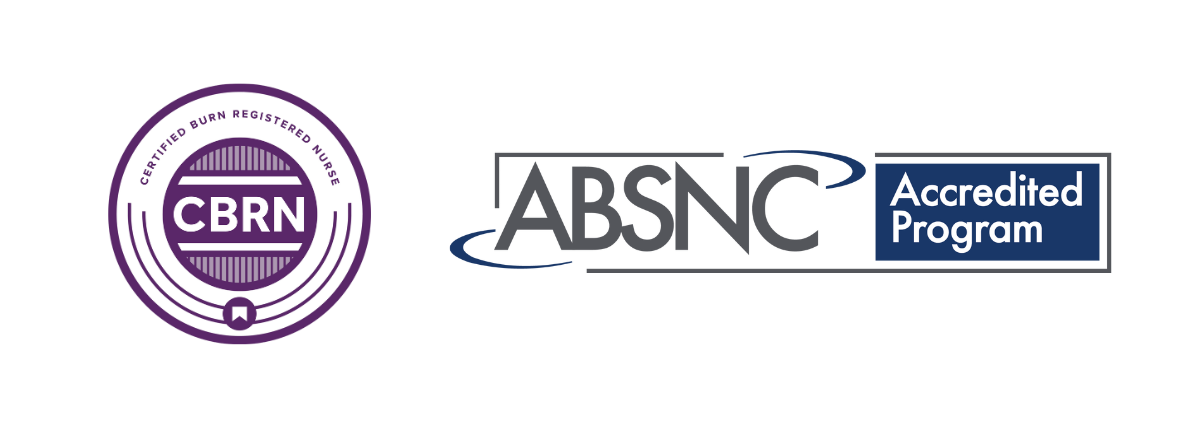BCEN’s Burn Nursing Specialty Certification Is Now Accredited and Magnet-Accepted

OAK BROOK, IL (August 8, 2025) – The Board of Certification for Emergency Nursing (BCEN), the benchmark for certification across the emergency spectrum, today announced that the Accreditation Board for Specialty Nursing Certification (ABSNC) has granted accreditation of the Certified Burn Registered Nurse (CBRN) certification program, effective August 1, 2025. By virtue of being accredited by ABSNC, the CBRN is also now an ANCC Magnet-accepted nursing specialty certification.
BCEN launched the CBRN certification program worldwide in October 2023 after partnering on the initial development of the CBRN exam with the American Burn Association (ABA) and burn nursing experts from across the country. Today, over 600 registered nurses (RNs) have demonstrated their knowledge across the burn care continuum and hold the CBRN.
“Accreditation by ABSNC offers an important assurance to burn nurses, burn centers, and patients and their families—based on a rigorous and independent process—that the CBRN certification program meets or exceeds the highest quality standards,” said BCEN CEO Janie Schumaker, MBA, BSN, RN, CEN, ICE-CCP, CENP, CPHQ, FABC.
“Now that the CBRN is accredited, all six BCEN certifications—the CEN, CPEN, TCRN, CFRN, CTRN, and CBRN—are both accredited and Magnet-accepted,” said Schumaker. “Achieving the ‘gold standard’ of national accreditation across our certification programs underscores BCEN’s commitment to offering high-value credentials that recognize the expertise of emergency, pediatric emergency, trauma, flight, critical care ground transport, and burn nurses, and promote their continued competence.”
For more on burn nurses’ pivotal role in burn care and the CBRN, read BCEN’s CBRN Milestones and Burn Nursing Excellence: The Certified Burn Registered Nurse (CBRN).
About ABSNC Accreditation
“ABSNC accreditation provides an impartial, third-party validation that the CBRN certification program has demonstrated compliance with national industry standards for the development, implementation and maintenance of a nursing specialty certification program,” said BCEN Director of Certification and Accreditation Amy Grand, MSN, RN, ICE-CCP. ABSNC requires reaccreditation every five years.
“To earn accreditation, a certification body must provide detailed data that demonstrates a certification program adheres to ABSNC’s 18 accreditation standards including organizational autonomy, basis in a body of research-based knowledge, nondiscrimination, test development, validity, reliability, test administration, test security, fairness of passing score, recertification, and confidentiality,” said Grand.
About BCEN
Founded in 1980, the independent, not-for-profit Board of Certification for Emergency Nursing (BCEN®) offers robust nursing specialty certification programs fostering empowered nurses across the emergency spectrum who contribute noticeably to patient care, safety and outcomes. Over 60,000 BCEN credentials are held by registered nurses (RNs) who specialize in emergency, pediatric emergency, flight, critical care ground transport, trauma, and burn nursing. BCEN offers the Certified Emergency Nurse (CEN®), Certified Pediatric Emergency Nurse (CPEN®), Certified Flight Registered Nurse (CFRN®), Certified Transport Registered Nurse (CTRN®), Trauma Certified Registered Nurse (TCRN®), and Certified Burn Registered Nurse (CBRN). All six BCEN certification programs are accredited by the Accreditation Board for Specialty Nursing Certification (ABSNC) and are ANCC Magnet-accepted. Learn more at bcen.org.
# # #
CONTACT: Maris Hammons, BCEN Director of Marketing & Communications | mhammons@bcen.org | 630-339-4530
